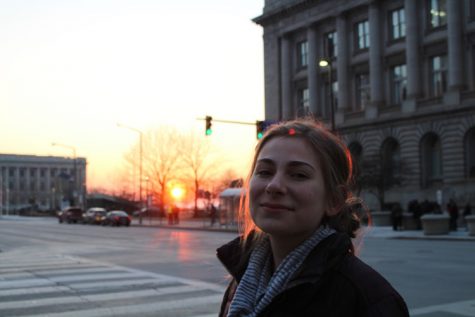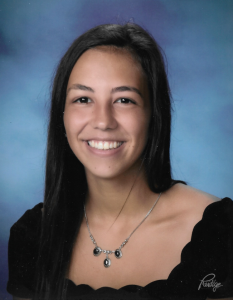Column: School choice: a catalyst for religious freedom and social justice
Jan 24, 2019
My mom never stops moving. Whether it be selling pull-cards at our church’s bingo or taking calls at the fish fry, she is always involved, always on her feet and always working toward something.
So, it should come as no surprise that, on multiple occasions, she dragged my siblings and me out to our local government offices to petition people who had neither interest nor time for discussing the matter of school choice.
On one particularly grueling occasion, we were asked to sit quietly in the waiting room until our mom was done.
We sat for two hours.
At the time, I was thinking of nothing other than getting out of that waiting room. But now, my view of these occasions has morphed into a deep appreciation and respect. My mother marched into a government office and attempted to make a change that she believed would help others.
School choice is the notion that all members of the community should have the privilege of choosing which education system best suits their child’s needs in K-12, whether it be a public school, private school, charter school, religious school or homeschool.
In my experience, school choice has been branded as a bullet point on the pushy Catholic agenda. This leads to the main argument against it, which is that school choice would prohibit the full separation of church and state. We can’t have the government funding religious education, can we?
But perhaps instead of understanding the separation of church and state to mean government non-involvement, we can understand it as an impartial body, supporting the free choice of its citizens rather than subjecting them to limited education options that would actually infringe on their religious freedom.
Students would be granted access, if they so desired, to an enriching educational process tailored to their needs. Also, each individual institution would become stronger because of the competitive nature of school choice. Granted, it would spur a shift in the infrastructure of the school network, both nationally and locally, but should we not change the current system just because it would be difficult? Do the imagined changes not speak to the unfulfilled needs of a community?
Not only would school choice allow for full religious freedom, but it would also enable children living in low-income areas to partake in quality instruction, potentially breaking the cycle of poverty.
Where you live should not determine the quality of education you receive. In the end, this is a dangerous game that deepens the cracks between the rich and poor. According to Global Partnership for Education, “If workers from poor and rich backgrounds received the same education, disparity between the two in working poverty could decrease by 39 percent.”
We can provide welfare and unemployment checks to people later in life, but that money would be better invested in supplying children with developmental opportunities while they have a chance to break the cycle of poverty.












